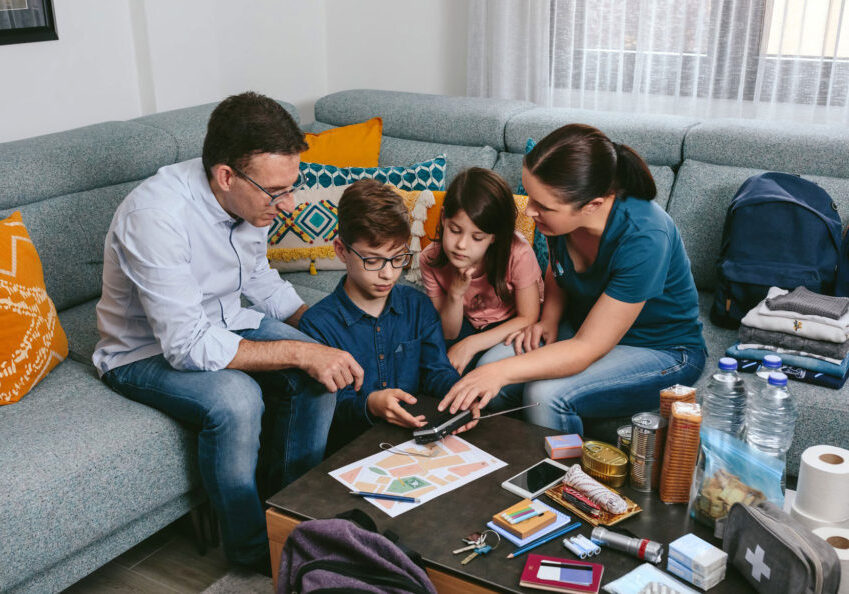Words of Wisdom for Special Needs Parents, From Special Needs Parents
Like most parents of children with special needs, author Gabrielle Kaplan-Mayer found herself navigating uncharted waters when her son George was diagnosed with autism at the age of 3. Although Kaplan-Mayer wrote the following article from the perspective of having a child with autism, these tips could apply to a variety of diagnoses. We reached out to local parents of children with special needs to find out how they incorporate these tips into their own lives.
Special Contribution from Gabrielle Kaplan-Mayer. Introduction by Jennifer Arnold.
When my son George, 14, was diagnosed with autism at age 3, I didn’t know any other parents raising kids on the spectrum. It was a lonely beginning for my husband and me, as it is for so many parents who receive the news of an autism diagnosis.
Fortunately, I found my tribe online. This was slightly before Facebook, but I joined lots of listservs and forums for parents trying to learn more about autism, how to navigate services and integrate the “new normal” of raising a child on the spectrum into family life. Soon, we found a therapeutic preschool for George and connected with parents in our community who could share resources and support.
Over a decade later, I now write about autism parenting for a variety of publications and direct an initiative called Whole Community Inclusion that provides supports to parents raising kids of all abilities. My parenting journey hasn’t always been an easy one. But it’s been full of surprising blessings and many opportunities to learn not only about autism but my own capacity to grow in understanding and compassion as well.
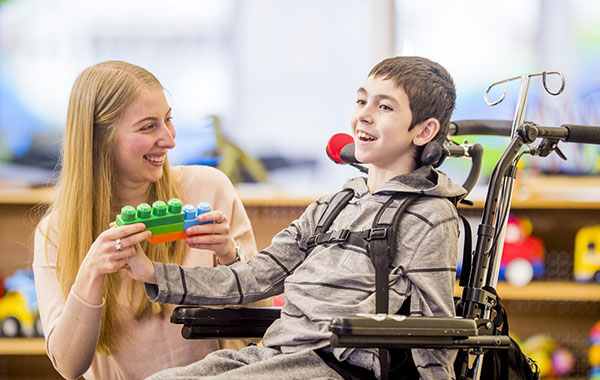
Here are 10 tips that I’ve learned over the years.
Put on Your Oxygen Mask First
As parents raising kids with significant needs, our own self-care really matters. When kids are diagnosed with autism, we parents begin a process of intensive therapy … but rarely is it mentioned that parents need to make space to take care of themselves, emotionally and physically. When my son was first diagnosed, I didn’t make time to get to the dentist for over two years — and ended up with a nasty cavity that could have been filled easily. We need to be strong for our kids and for ourselves. Prioritize time each day, whether it’s for a 10-minute meditation, a quick walk or whatever you can do to make yourself feel well.
– “I always make time to exercise. I saw how much of a better mom I was when I had that stress relief.” Lori C., Butte County, 18-year-old son with Global Delays.
Find Your Tribe
Whether online or in person, finding peers who can relate to your journey is essential for your sanity and growth. As your children grow up, it really helps to have a couple of friends on your speed dial who “just get it.” Look for parent support groups in your area, contact Parent to Parent, a national organization that matches parent mentors, or check out the Autism Moms of Seattle group on Facebook.
– “I created this group (Shasta Moms of Special Needs Children – on Facebook) as a way to connect with other moms locally who may feel secluded or lonely during their Far Northern assessments with their child(ren). You’re not alone! This group is always here to listen, or even hear a rant or rave about your day.” Kristyn, Redding, mom to Logan, age 2, Developmental Delays; awaiting autism assessment and official diagnosis.
Nurture All of Your Kids
Autism can take over a family, but nurturing your child’s siblings is essential to your family wellbeing. It helps to make special time for your child(ren) who don’t have identified “special needs” to just be with a parent. If your schedule is full, consider doing breakfast before school or work once a month or sneak out for an ice cream date on a Saturday night. Our calendars get packed with therapy appointments so setting a repeating event for time with your other kids can help!
– “I like it when my Mom or Dad take me out by myself sometimes. It’s nice to have them to myself.” Byron, 9, Shasta County, brother to an 11-year-old sister with autism and Intellectual Disability.
Marriage Plus Autism Does NOT Mean Divorce
There are myths floating in the universe that autism parents are destined for divorce, but this simply isn’t true. Partners can in fact grow deeper in their partnering through working together. Just as it’s essential to make time for other children, it’s crucial to make time as a couple to do fun things and talk about anything at all — as long as it’s not autism related. If you’re fighting a lot or struggling to get on the same page in terms of your parenting, find a great counselor right away to coach you.
– “Travel is our therapy! If that’s not possible, date nights and new experiences are a must! We focus on communication and experiencing new things together to make sure that we continue to grow together (rather than apart).” Mary Ellen, Siskiyou County, two sons with ASD.
Find Activities That Work for the Family
Some of my favorite memories over the years were those times when we figured out ways to enjoy simple family time together: taking a walk, going to our neighborhood pool, exploring different nature trails. Whether taking part in community events, enjoying the outdoors or finding an inclusive house of worship, you want to figure out the best ways that your family can get out and be part of a community.
– “When we go out as a family, we go places where we know all our kids are comfortable. It limits our choices, but I would rather have everyone have a good time than be worrying about a meltdown.” Amber D., Siskiyou County, 7-year-old son with autism.
Let Go of Obligations
When you have a child with autism, you need to get comfortable saying “no” to obligations that you simply don’t have the time or energy for. Recognize that you’re holding much more than a parent of typical kids and by caring for your family, you’re giving back to the community. Practice saying no.
– “It’s hard not to feel guilty when I can’t commit to things like volunteering at my children’s schools on a regular basis, but as a parent of a medically fragile child, we never know what life is going to throw at us.” Jennifer, Shasta County, mom to a 7-year-old with Chronic Lung Disease.
Positive People Only
Similarly, spending time with negative people can sap your precious energy. Over the years of parenting my kids, I’ve released some draining, needy, negative people in my life. Learning to set clear boundaries and encourage positive relationships has been so good for me — I feel supported by the people who are close to me, through the ups and downs that have been part of George’s growing up.
– “I understand that not everyone can understand my kid or how he works or how we as parents work, but having a group of people who “get it” can help. Having a group of people in the same situation helps reduce your stress because you aren’t alone.” Susan, Chico, mom of an 8-year-old son with Oppositional Defiance Disorder.
Make Time for Your Emotions
It’s normal to have good days and challenging days. For some people, talking to a friend is most helpful while other parents benefit from finding a therapist. I’ve recently created a reflection journal for parents that gives you space to express your joys, blessings, hopes and challenges. It’s a great resource if getting to therapy isn’t an option for you right now!
– “When our daughter was first diagnosed I became obsessive over gaining autism knowledge and sought out every resource available, hoping that I wouldn’t feel the emotional hit if I stayed busy. Eventually, the avalanche of pent-up emotions hit me and it was overwhelming, so I reached out for help. During the six months following her diagnosis I went to weekly therapy to process my feelings and figure out how to move forward in this new life I found myself in. This self-care was crucial in handling future IEP meetings, interventionist coordination and more.” Christina, Tehama County, mother of Stella, age 3, autism.
Keep Advocating
At whatever age or stage your child is, there is hope that they will continue to learn and grow. At different stages, you may encounter teachers, therapists or even friends and family members who don’t believe in your child. Hopefully, others will follow.
– “Always fight for your child and remember you are their voice. Do your own research that has to do with your child’s specific needs and do not be afraid to stand up for yourself and your child when it is needed. Also it is important to be educated on their diagnosis and to find a system or routine that works for you and them so everyone is on the same page to help the days run smoother.” Diane, Shasta county, 3-year-old daughter Tessa who has an autism diagnosis.
Stay Present
Autism parenting is like running a marathon, not a sprint. Sometimes we need to take life life hour-by-hour and even minute-by-minute. It’s easy for worries and fears of the future to surface, but guiding our attention back to the present is more helpful. Remember that no parent knows for sure what the future holds for their children … staying grounded and hopeful is a healthy practice for us all.
– “Worrying does not take away tomorrow’s troubles. It takes away today’s peace.” Randy Armstrong, musician for the band RED. (While Randy is not exactly local, the quote is a powerful reminder to not dwell on what we cannot control.)
Glossary of Common Special Education Terms
The world of special needs parenting is full of acronyms, terminology, and phrases that can often be confusing. This is a list of those that are commonly found in educational plans and reports, and family service plans.
- ABA: Applied Behavioral Analysis – a type of behavior therapy using the application of the principles of learning and motivation from Behavior Analysis.
- ADA: Americans with Disabilities Act.
- ADD: Attention Deficit Disorder.
- ADHD: Attention Deficit Hyperactivity Disorder.
- ADLs: Activities of Daily Living.
- APE: Adaptive Physical Education – a program of physical education that is suited to the needs and capabilities of students with disabilities who can not successfully engage in a regular PE class.
- ASD: Autism Spectrum Disorders.
- AT: Assistive Technology – any piece of equipment used to improve functional capabilities of individuals with disabilities.
- CD: Cognitive Delay.
- DD: Developmental Delay.
- DOE: Department of Education.
- DS: Down Syndrome.
- ECE: Early Childhood Education.
- FAPE: Free Appropriate Public Education – special education and related services are provided to students at no cost to the parents.
- FBA: Functional Behavioral Assessment.
- ID: Intellectual Disability.
- IDEA: Individuals with Disabilities Education Act – federal law that entitles students with disabilities to special education services.
- IEP: Individualized Education Plan – an annual written record of a student’s special education and related services and the manner in which their needs will be met.
- IFSP: Individualized Family Service Plan – a plan for providing early intervention services to an eligible child with a disability and to the child’s family.
- Inclusion: The belief that every student is entitled to an instructional program that meets their individual needs; to maintain a sense of belonging to all students regardless of strengths or challenges.
- LD: Learning Disability.
- LEA: Local Education Agency – a school district.
- LRE: Least Restrictive Environment – a federal mandate which stipulates that students with disabilities be educated with their non-disabled peers.
- Modification: A change in curriculum that alters the requirements of the class or an individual to better fit their needs and abilities.
- ODD: Oppositional Defiant Disorder.
- OHI: Other Health Impairment.
- PDD: Pervasive Developmental Disorder.
- PP: Paraprofessional.
- SAS: Supplementary Aids and Services.
- SELPA: Special Education Local Plan Area – a consortium of school districts responsible for ensuring that every child eligible for special education receives appropriate services.
- Section 504: of the Rehabilitation Act.
- SDC: Special Day Class.
- SED: Serious Emotional Disturbance.
- SI: Sensory Integration.
- SLP: Speech Language Pathologist.
- TBI: Traumatic Brain Injury.
- Transition Plan: A plan to coordinate the movement from school to post-school education, vocational training or employment.
- Therapies: OT – Occupational Therapy, PT – Physical Therapy, ST – Speech Therapy.
- VI: Visual Impairment.
Posted in: Special Needs
Comment Policy: All viewpoints are welcome, but comments should remain relevant. Personal attacks, profanity, and aggressive behavior are not allowed. No spam, advertising, or promoting of products/services. Please, only use your real name and limit the amount of links submitted in your comment.
You Might Also Like...
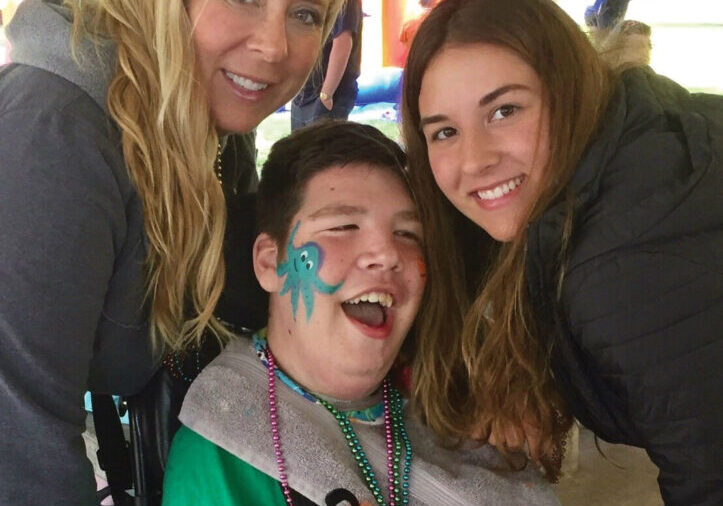
Celebrating Inclusivity At The Special Needs Carnival In Durham
For many people with disabilities, carnivals can be a stressful and anxiety-filled experience. Primarily geared toward “typical” community members, they often lack accessibility and can be a breeding ground for […]
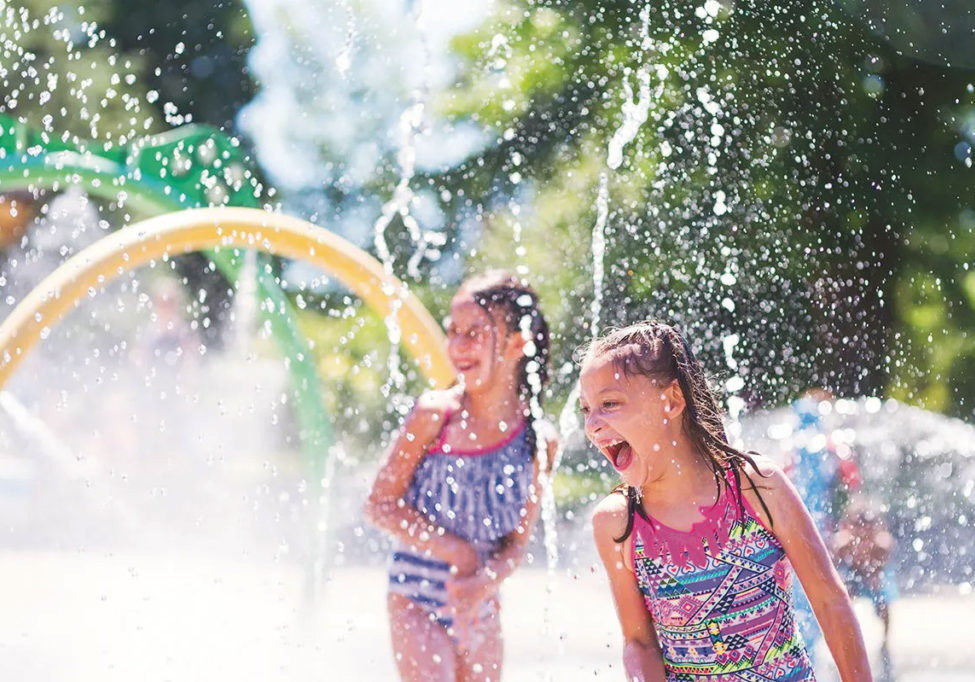
Red Bluff’s Big Splash Project – Creating An Inclusive Place For Children Who Love The Water
Sidelined by the pandemic, and now back on track Over the last year, the COVID-19 pandemic has taken a tremendous toll on local businesses and community endeavors, and The Big […]

Halloween Tips for Families of Children with Diverse Abilities
Although Halloween can be a fun time for kids of all abilities, it often can be overwhelming for children with special needs. They may have trouble with the loud noises, […]
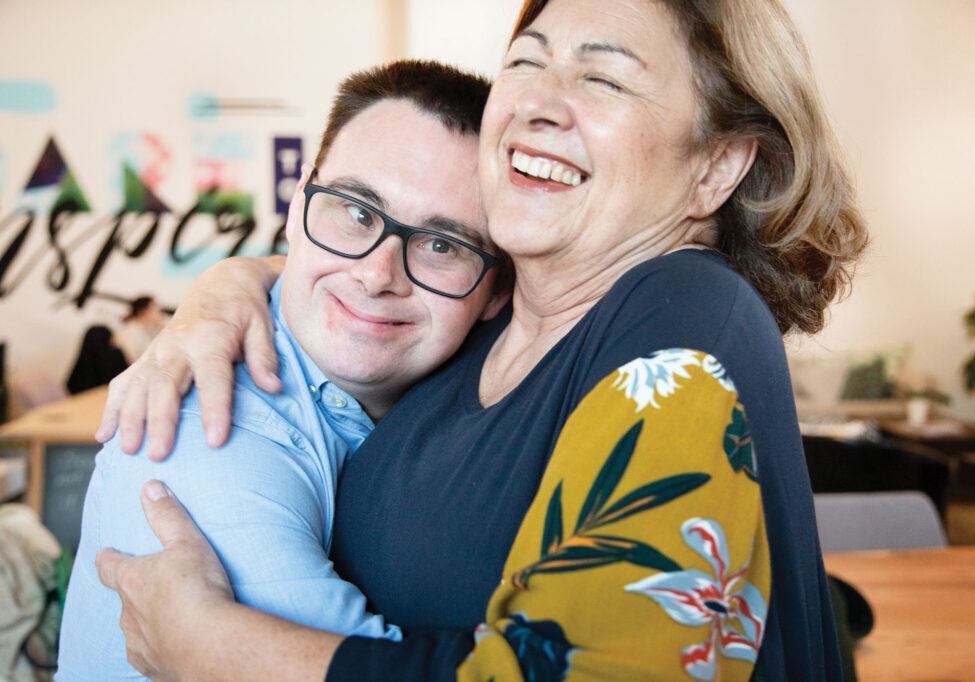
California MENTOR’s Family Home Agency Provides Housing Solutions for Disabled Adults in the North State
Adults with intellectual and developmental disabilities often face unique challenges in accessing quality housing, community participation and care services. Traditional group homes or institutions often lack the personal touch and […]
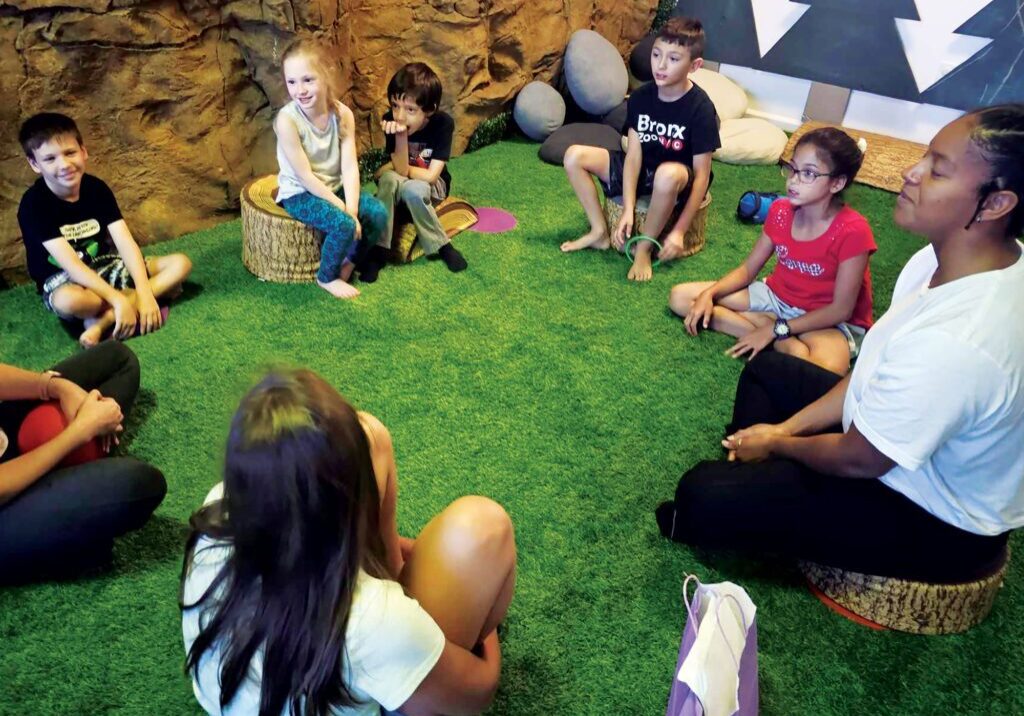
Sensory Innovations: Empowering All Ages Through Play and Occupational Therapy
Sensory play, occupational therapy and physical therapy are essential for fostering critical skills such as motor development, cognitive function and social interaction. Sensory play can reduce stress, improve focus and […]



